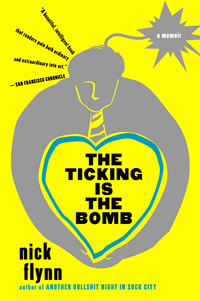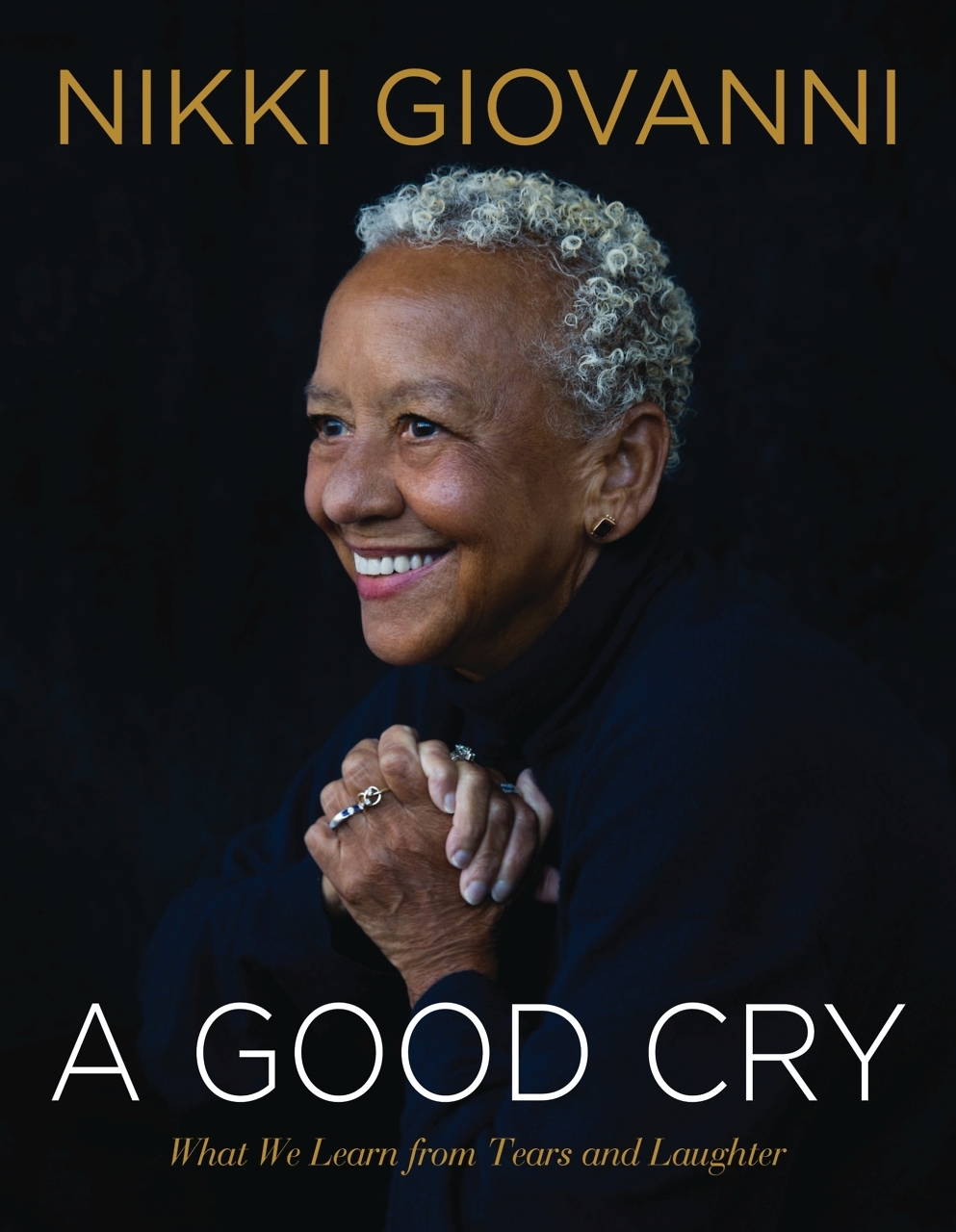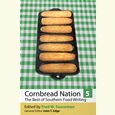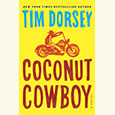Mining the Past, Uncertain of the Future
The grief and dislocation of Nick Flynn’s life become a study in bewilderment
The cruel truths of Nick Flynn’s life have served him well, if painfully, as an artist. In much of his work—which spans two collections of poetry, essays, a play, collaborations with other artists and writers, and two memoirs—Flynn has grappled with a tragic history: his mother’s suicide; his father’s alcoholism, imprisonment, and homelessness. Flynn bears his own deep scars, as well: years of drug and alcohol use, a string of damaged relationships with women, a psyche clearly burdened by his family’s troubles.
But out of this well of grief, hard luck, and wayward paths, Flynn has pulled a well-received body of literature, securing his reputation in contemporary poetry. In two memoirs, Another Bullshit Night in Suck City and The Ticking is the Bomb, he again mines his difficult past to critical acclaim. Now in paperback, The Ticking is the Bomb is a survivor’s tale, albeit far from the Oprah-ready variety in which the hero has emerged from his struggles with hard-earned wisdom to share. Instead, it’s the voice of a troubled mind still struggling to make sense of the wreckage, still doubtful of its own stability.
 Another Bullshit Night in Suck City concerns Flynn’s father, who was homeless in Boston during a time when Flynn himself was working at a shelter where his father sometimes stayed. In The Ticking is the Bomb, Flynn is on the verge of becoming a father himself, forced to face (or revisit) the demons of his past. The book is prismatic, composed of very brief chapters that slip back and forth in time, returning to the loss of Flynn’s mother and to his father’s increasingly desperate condition. He also lays bare his own deeply flawed relationships with women, confessing that he “wasn’t used to calling love something that didn’t involve disaster.” The fragmented portrait of the battle-scarred terrain that emerges is indeed unsettling: for years, he writes, “some part of me imagined a new woman as a city I could stay in for a while, then visit from time to time. I’d know my way around, I wouldn’t need a map, but I wouldn’t really live there either.”
Another Bullshit Night in Suck City concerns Flynn’s father, who was homeless in Boston during a time when Flynn himself was working at a shelter where his father sometimes stayed. In The Ticking is the Bomb, Flynn is on the verge of becoming a father himself, forced to face (or revisit) the demons of his past. The book is prismatic, composed of very brief chapters that slip back and forth in time, returning to the loss of Flynn’s mother and to his father’s increasingly desperate condition. He also lays bare his own deeply flawed relationships with women, confessing that he “wasn’t used to calling love something that didn’t involve disaster.” The fragmented portrait of the battle-scarred terrain that emerges is indeed unsettling: for years, he writes, “some part of me imagined a new woman as a city I could stay in for a while, then visit from time to time. I’d know my way around, I wouldn’t need a map, but I wouldn’t really live there either.”
His girlfriend’s pregnancy, however, is a potential game-changer, perhaps the one he has been waiting for all along: in a prologue of sorts, he writes, “One day I hope to be able to tell my daughter a story about a dark time, the dark days before she was born, and how her coming was a ray of light.” And a little later: “I want this book to be behind me when she arrives. I don’t want my first days with her to be wrapped up in torture, in shadows.” Anticipating a child, Flynn suggests, is a raw reckoning: “Some people tell me that once the baby comes I will feel a new love, a love like I have never felt before,” he writes, and then immediately wonders: “What if it doesn’t happen to me?”
 Against this backdrop of pivotal personal change—or projected onto it, as if double-exposed—is Flynn’s exploration of torture, specifically that of the Iraqi detainees at Abu Ghraib. He recounts a trip to Istanbul, where he bears witness to their testimony. On the very first page, Flynn’s meditation on the sonogram of his unborn daughter (“I was there when each shot was taken, yet in some ways, still, it is all deeply unreal”) is followed immediately by thoughts on the images of torture at Abu Ghraib: “Hundreds of such photographs exist, by now we’ve all seen them, by now we’ve all held them in our hands, but they also have the texture of dreams—shadowy, diaphanous, changeable.”
Against this backdrop of pivotal personal change—or projected onto it, as if double-exposed—is Flynn’s exploration of torture, specifically that of the Iraqi detainees at Abu Ghraib. He recounts a trip to Istanbul, where he bears witness to their testimony. On the very first page, Flynn’s meditation on the sonogram of his unborn daughter (“I was there when each shot was taken, yet in some ways, still, it is all deeply unreal”) is followed immediately by thoughts on the images of torture at Abu Ghraib: “Hundreds of such photographs exist, by now we’ve all seen them, by now we’ve all held them in our hands, but they also have the texture of dreams—shadowy, diaphanous, changeable.”
The connections between one brief chapter and the next are sometimes murky, at times impossible to discern. Personal and political strife make uncomfortable but inevitable bedfellows, all tangled limbs and sheets, as Flynn searches for clarity, a consideration of the wrong turns and tragedies of his life, and of the world he wakes to every day. But this pattern—of questions unanswered, dots left unconnected, meaning loosely suggested rather than spelled out—is both true to Flynn’s roots in poetry and of a piece with this particular memoir’s function as a study of bewilderment. Bewilderment: the word itself reappears in the memoir again and again, offering a tacit invitation: join me in exploration, but be prepared to get lost with me, too.
In the end, the question that hovers in the shadows throughout the memoir—will Flynn find in fatherhood the redemption he seeks?—is given, at least for the moment, an answer: The Ticking is the Bomb closes with a scene in which Flynn holds his baby daughter in his arms: “I shut the computer, a pure simple joy filling the room. The leaves she is staring at now, she can’t even see them, not the green, not the shapes, she is simply staring into this world—everything hazy, but slowly coming into focus.” It’s impossible not to hope that the same thing is gloriously, finally happening for Flynn, too.
Nick Flynn will read from his work at Vanderbilt University in Nashville on November 10 at 7 p.m. in Furman Hall, Room 114. The event is free and open to the public.


